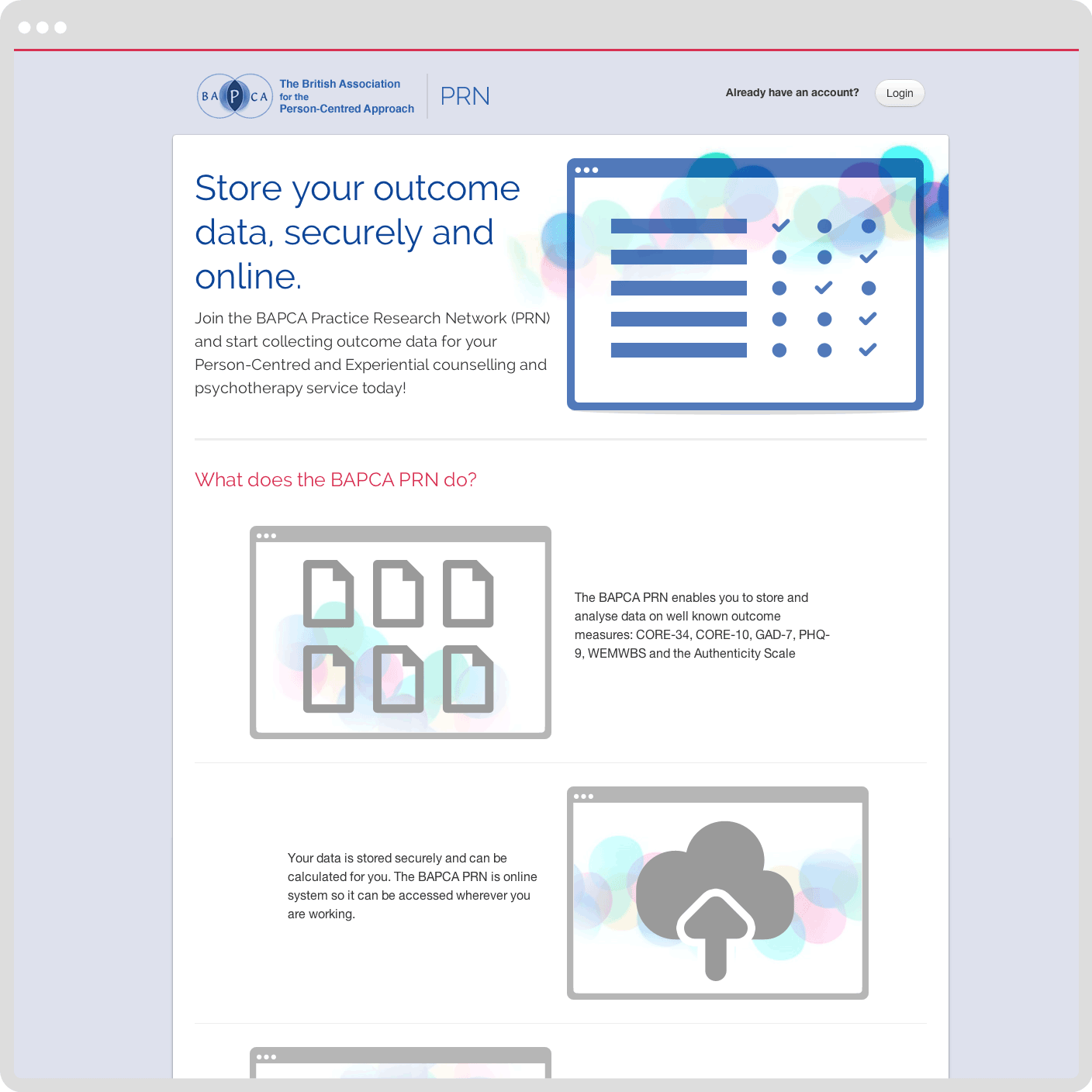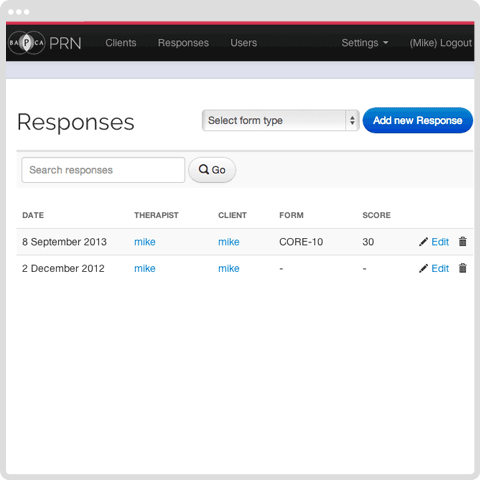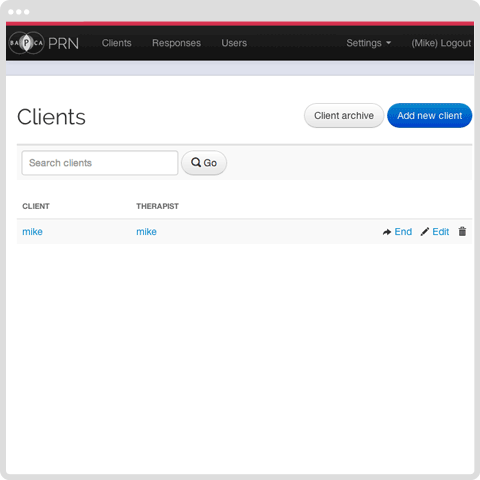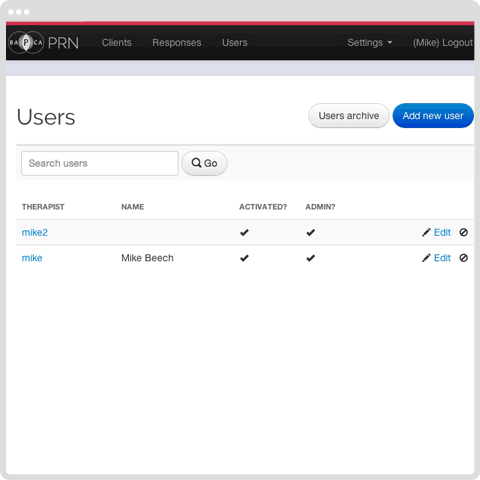BAPCA PRN
How to collect research data effectively
During conversations around Client Records, I was approached by the British Association for the Person-Centred Approach (BAPCA). The counselling charity wanted to create a system for storing, collating and analysing the data collected by their community of members to form a practise research network (PRN)
After each counselling session a client is given a paper questionnaire to fill out. This can be used to gauge the effectiveness of therapy, the progress of a client and the underlying counselling technique and service.
Rapid Prototyping
I attended a research meeting to gather the requirements. Until now, the data was manually entered into spreadsheets. It was time intensive and error prone and BAPCA were looking for a solution.
I prototyped the first version in the car ride home. It was a simple form, a list of questions corresponding to the questions on the paper and radio boxes to enter the data. The results were serialised and saved in a database.

Feedback
Over the next few months we iterated over this initial prototype and eventually settled on a formal specification of what the final product should do.
As with any long running project, requirements change with time. I attended research meetings with BAPCA to get regular feedback from the final users while also listening to identify other potential uses that hadn't already been surfaced.
It was decided that each participating counselling service would have a nominated administrator, they would be responsible for the counsellors who can input data using the system. Individual counsellors could use the system to monitor their own progress through the data they had entered on the client by client basis. Service administrators could use the system to monitor the progress of the service as a whole on a counsellor by counsellor basis. BAPCA would act as the system administrators, they could use the system to monitor the progress of the services and the person-centred approach to counselling.
Design, Build, Test, Repeat
This began months of designing, building, testing, getting feedback, then repeating.
Two key features were identified. It needed to work well on mobiles. Computers were scarce within the services whereas the majority of the users would have access to smartphones. Entering the information needed to be extremely quick, I introduced a set of shortcuts that counsellors could use in order to quickly type their data into the forms, forgoing the need to click the radio buttons. However, the radio buttons remained as they were easier to use for those less comfortable with computers.




BAPCA were able to present the final product at their conference and signup interested services to take part in the pilot scheme.
The product is free to use for BAPCA service members, but the project has been left open ended with the intention to introduce premium and paid for features when the need presents itself.
Technology
FuelPHP, PHP, MySQL, Apache, Linux, jQuery, CSS, Photoshop
Role
Developer